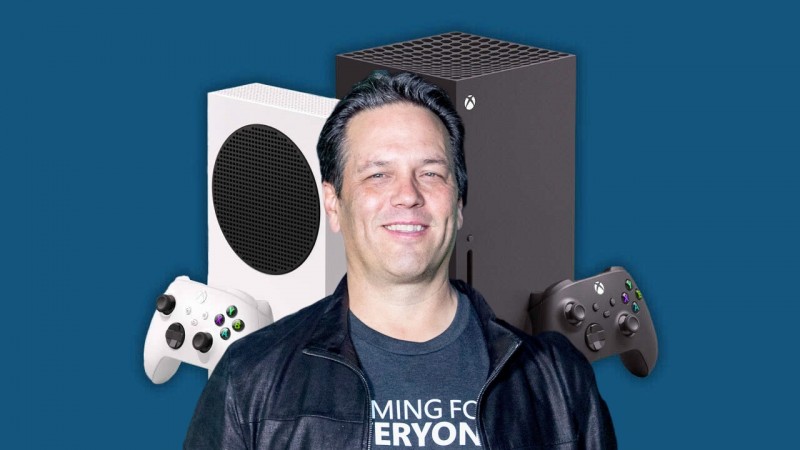When Microsoft purchased ZeniMax for a cool $7.5 billion, speculation was rampant about what that means for the future of franchises under that publisher’s umbrella. Most notably, titles under Bethesda’s direction such as Elder Scrolls 6 and Fallout 5. While we ourselves did a deep dive into the likelihood of those series going Xbox-only from a marketing and business perspective, we still don’t have a definitive answer either way. That being said, Xbox boss Phil Spencer did reiterate that no matter what their decision, it’s in their rights to do whatever they decide.
In a recent interview with Kotaku, Spencer said that yes, it is possible for the team to recoup on that $7.5 billion investment and reiterated that this acquisition was “not done to take games away from another player base like that.” That response falls in line with the Xbox brand’s total mission overhaul from the failed launch of the Xbox One, moving the Team Green brand back into the focus of gamers and less as an “all-in-one” entertainment system.
With a focus on gamers and working with other companies like Nintendo and Valve, Microsoft has shattered many platform barriers in the last 18 months. With EA Play’s integration and many first-party games making their way onto Steam, the barrier between PC and Xbox is slimmer than ever before. Pair that with the ongoing conversations happening with Nintendo and Spencer’s repeated proclaimation about joining forces with all gaming companies to making video games approachable for all, and his response about the acquisition makes sense.
The interview continued and the next line seems to have many worried, and reports spinning off of the initial interview haven’t helped. The last two years have been one of rebuilding for Xbox, and that has resulted in a lull of apparent change because much of those shifts are occurring behind the scenes. With an incredible amount of studios acquired in addition to the promise of a more “inclusive” gaming experience for gamers of all platform preferences, Microsoft is in a unique position that they weren’t in a few years ago: they don’t necessarily need those acquisitions to translate directly into platform-specific exclusives.

As we’ve mentioned previously, it is entirely likely that games like Starfield will be Xbox/PC-exclusives due to the fact that they are anticipated titles with blank slate communities. Nobody knows about that game, not really, so it can be a ground-up possibility to be the next Halo in terms of being a flagship staple. On the flip side, to take away a core franchise like Elder Scrolls that has an already established fanbase across all platforms at this stage in their reparative strategy would be impactful in a negative way that contradicts everything Microsoft has built in the last two years. It’s because of that focused effort and streamlined marketing strategy that I think that if we see a The Elders Scrolls 6 excluvity at all, it could very well be a timed-agreement only. And that’s if it happens at all.
Still, in the recent interview, Spencer did add that the team is thinking extensively about “where people are going to be playing and the number of devices that we had, and we have xCloud and PC and Game Pass and our console base, I don’t have to ship those games on any other platform other than the platforms that we support in order to kind of make the deal work for us. Whatever that means.”
Immediately, fans of Bethesda took that to an unconfirmed confirmation that Elder Scrolls 6 would be an exclusive after all. To me, it doesn’t read that way necessarily. One, it is always bad form to just assume when something isn’t clearly stated. Two, the way the wording is, it sounds like he’s more addressing all of the mass amounts of input from the community in the form of articles, videos, and very heated debates. To me, it reads like a line drawn of ‘We could do whatever we want’ but that doesn’t mean Microsoft will.
At the end of the day, only time will tell. As we’ve stated already, if this acquisition happened even two years ago, this conversation would be totally different. It would be an almost guarantee that all of the games inherited would be exclusive. But Microsoft has changed the game of exclusivity immensely when they completely overhauled their strategy into more of a service rather than a hardware focus. At this point, we have to take Spencer, and their team, at their word and wait to see what happens.
Luckily (or unluckily, depending on how you look at it), both major Bethesda franchises that people keep talking about are years and years away. A lot can change in that time, including Microsoft’s approach to their own ecosystem.
What do you think about Spencer’s statements about exclusivity going forward, especially in relation to a game like Elder Scrolls 6? Did you read the entire article before telling us we’re off of our rocker? Sound off with your thoughts in the comment section below and tell us what you think!
[Source: Kotaku]
